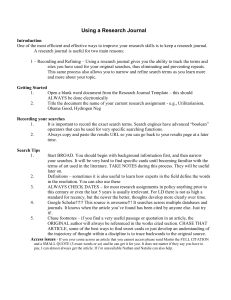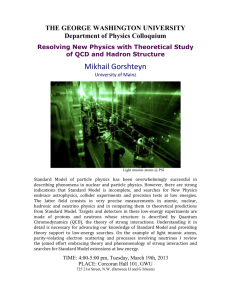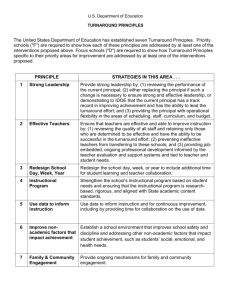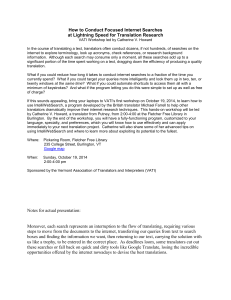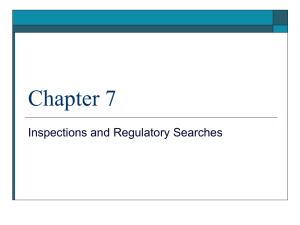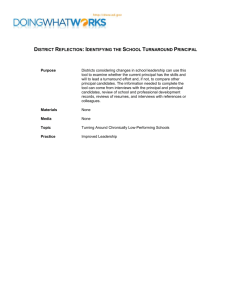Turnaround Time Information
advertisement
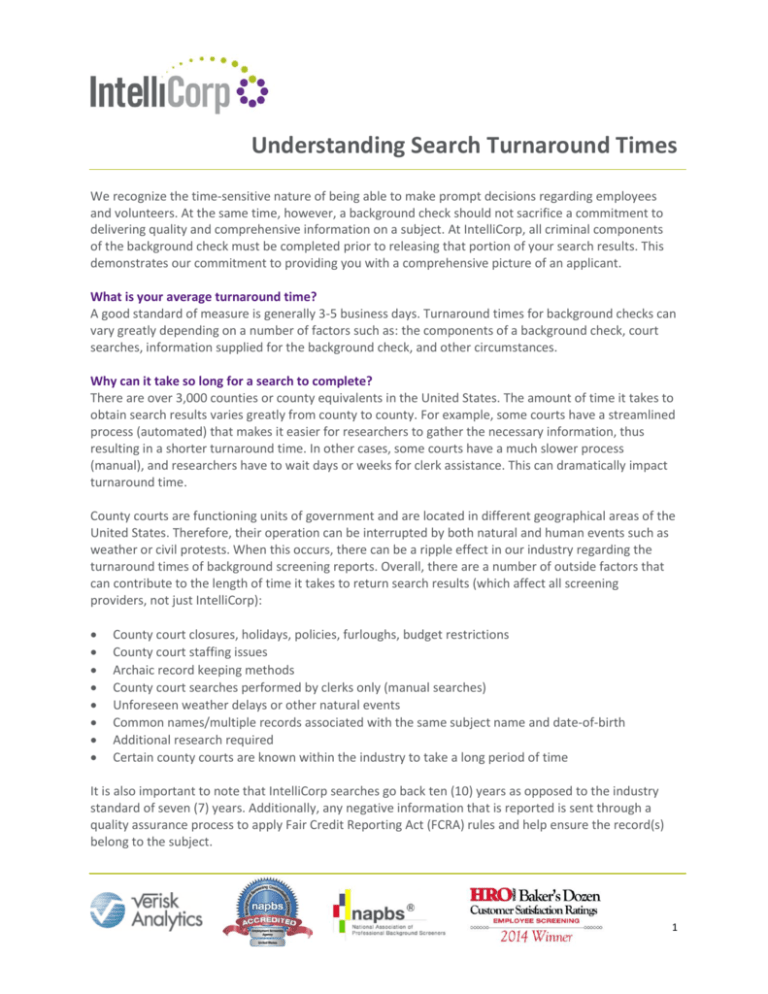
Understanding Search Turnaround Times We recognize the time-sensitive nature of being able to make prompt decisions regarding employees and volunteers. At the same time, however, a background check should not sacrifice a commitment to delivering quality and comprehensive information on a subject. At IntelliCorp, all criminal components of the background check must be completed prior to releasing that portion of your search results. This demonstrates our commitment to providing you with a comprehensive picture of an applicant. What is your average turnaround time? A good standard of measure is generally 3-5 business days. Turnaround times for background checks can vary greatly depending on a number of factors such as: the components of a background check, court searches, information supplied for the background check, and other circumstances. Why can it take so long for a search to complete? There are over 3,000 counties or county equivalents in the United States. The amount of time it takes to obtain search results varies greatly from county to county. For example, some courts have a streamlined process (automated) that makes it easier for researchers to gather the necessary information, thus resulting in a shorter turnaround time. In other cases, some courts have a much slower process (manual), and researchers have to wait days or weeks for clerk assistance. This can dramatically impact turnaround time. County courts are functioning units of government and are located in different geographical areas of the United States. Therefore, their operation can be interrupted by both natural and human events such as weather or civil protests. When this occurs, there can be a ripple effect in our industry regarding the turnaround times of background screening reports. Overall, there are a number of outside factors that can contribute to the length of time it takes to return search results (which affect all screening providers, not just IntelliCorp): County court closures, holidays, policies, furloughs, budget restrictions County court staffing issues Archaic record keeping methods County court searches performed by clerks only (manual searches) Unforeseen weather delays or other natural events Common names/multiple records associated with the same subject name and date-of-birth Additional research required Certain county courts are known within the industry to take a long period of time It is also important to note that IntelliCorp searches go back ten (10) years as opposed to the industry standard of seven (7) years. Additionally, any negative information that is reported is sent through a quality assurance process to apply Fair Credit Reporting Act (FCRA) rules and help ensure the record(s) belong to the subject. 1 Understanding Search Turnaround Times Criminal record validation vs. instant searches Criminal records can be edited or changed at the court. That is why IntelliCorp makes every effort to deliver the most current information on a subject. In order to qualify your applicants and prospective volunteers thoroughly on both a local and national level, IntelliCorp’s search process includes validating all of our criminal products. Should any potentially adverse information appear on the initial report, we return to the original source of the record(s) to ensure we have the latest updates regarding a subject’s information. If no adverse information is identified, the report is quickly made available to you. IntelliCorp does not offer instant searches. Although some instant criminal products are available in the marketplace, they are conducted as a database search only. These types of searches are quite vulnerable to inaccuracies and errors, and do not contain all criminal record information for every individual across the country. Most quality screening providers will advise that it is a much better decision to wait longer for a search to complete than base a decision from instant data. What are some common reasons for delays? Each county in the United States has its own system and policies for maintaining and releasing records. For example, while some courts may be computerized, others still use older and outdated methods of record keeping (such as paper or microfilm). Due to the wide disparity of county court rules and procedures, patience and understanding is necessary when conducting these searches. Clerk Only Search Clerk Assisted Search Government Restrictions Multiple Courts Not Visited Daily All searches in these counties must be processed by the county clerk, which can require time consuming manual research, especially for older cases and searches on common names. A search in the hands of a clerk is outside the control of the researcher, and is often processed on a “first come, first serve” basis. These searches involve counties in which possible hits must be processed by the county clerk. This is often required to confirm identifiers and/or gather complete case information (such as sentence or disposition). The process can require time consuming manual research, especially for older cases and searches on common names. A search in the hands of a clerk is outside the control of the researcher, and is often processed a “first come, first serve” basis. Some counties have various research constraints in place to control the number of searches that flow through the clerk. This can include; limiting the number of searches allowed per day, the restriction of daily hours, shortening the number of days open, and requiring additional paperwork or processes. This is a process by which multiple county courthouses must be searched in order to gather both felony and misdemeanor information. This duplicates search efforts and can require additional time. These are counties not visited daily by researchers due to their remote location and/or low search volume. Frequently visited every other day, these counties are visited at least weekly. 2 Understanding Search Turnaround Times What can you do to help speed up report turnaround times? Obtain properly signed and completed written authorization and release forms from your applicants. This is required under the Fair Credit Reporting Act (FCRA), and a background check provider cannot start the screening process until these forms are received. Provide accurate subject information and identifiers. This is vitally important in order to correctly verify an individual and their history. Supply the applicant’s e-mail address when inputting the subject’s information. We can use the email address to provide the consumer notification required under Section 613 of the Fair Credit Reporting Act (FCRA). Lessen the potential for data entry errors. Misspelling of names, Social Security numbers and pertinent elements can lead to delays. Therefore, a background check can be held until additional information is obtained from you. Submitting your searches earlier in the day can help to shorten the turnaround time of single county searches, since these require in-person visits to a courthouse. Plan ahead and submit searches in advance of holiday court closures and weekends. Stay informed about search delays IntelliCorp continuously monitors turnaround times related to court closures and delays. We provide our clients with updates, notifications and announcements on each user’s account homepage. Do you have questions? If you have questions regarding turnaround times or the time it is taking to receive your report, please contact your Sales Representative at 800-539-3717 or our Client Services Department at 888-946-8355 or customerservice@intellicorp.net. 3
